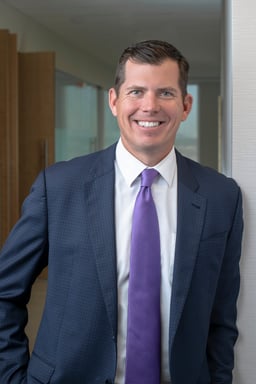
Ben Westcott, President and Co-Managing Shareholder
Ben Westcott explains how Andrews Myers’ client-driven, outcome focused business model has greatly improved its level of service with clients.
What do you see as the main points that differentiate Andrew Myers, P.C from your competitors?
Andrews Myers provides proactive solutions to clients based on deep industry specific knowledge and experience. We embrace technological advances and implement those strategies that allow us to utilize those tools efficiently. We also have many former big firm lawyers who understand the need for more cost-effective representation.
Which practices do you see growing in the next 12 months? What are the drivers behind that?
Construction and Labor/Employment. Ever-changing regulations, regional growth and a strong local economy are the biggest drivers.
What's the main change you've made in the firm that will benefit clients?
More frequent use of AI tools in document gathering, production and review. Case mapping and workflows have allowed us to be more efficient and effective.
Is technology changing the way you interact with your clients, and the services you can provide them?
Yes and no. We still need to practice effective listening and show empathy, then we can use these new technologies allow us to organize and summarize the information.
Can you give us a practical example of how you have helped a client to add value to their business?
Sure, most small to mid-size companies benefit from periodic policy, procedure and contract reviews. However, the documentation must be feasible to use both internally and externally. We often suggest modifications to those documents to allow the business to run better and match the most common high-risk situations with appropriate legal terms and provisions.
Are clients looking for stability and strategic direction from their law firms - where do you see the firm in three years’ time?
Yes, clients want to know that we have the service lines, skill and manpower to meet their needs on their timeline. Our firm has grown strategically to meet that demand and I expect it to continue to grow in the near future.
